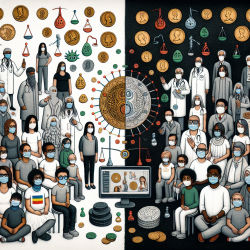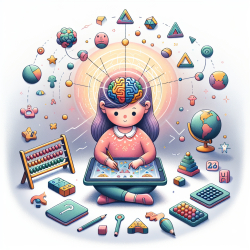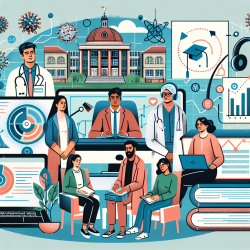In the field of speech-language pathology, data-driven decisions are crucial for developing effective interventions. The research article titled Addressing the Chronic PainEarly Cognitive Decline Comorbidity Among Older Adults: Protocol for the Active Brains Remote Efficacy Trial provides valuable insights that can be adapted to improve outcomes for children in therapy. This study focuses on the efficacy of a mind-body activity program tailored to older adults with chronic pain and early cognitive decline. Here, we explore how the findings can inform child therapy practices.
Key Findings from the Study
- Multimodal Approach: The Active Brains (AB) program integrates physical, cognitive, and emotional functions, which can be adapted for children to create a holistic therapy plan.
- Remote Efficacy: The study demonstrates the feasibility of conducting remote therapy sessions, an approach that can be particularly beneficial for children in rural or underserved areas.
- Use of Technology: The inclusion of wearable devices like Fitbit for monitoring physical activity can be translated into child therapy to track progress and motivate engagement.
Implementing Findings in Child Therapy
Based on the outcomes of the AB program, here are some actionable steps for practitioners to enhance child therapy:
- Holistic Treatment Plans: Develop treatment plans that address not just speech and language, but also physical and emotional well-being. Incorporate activities that promote overall cognitive development.
- Remote Therapy Options: Leverage teletherapy platforms to provide accessible and flexible therapy sessions. This can be particularly useful for maintaining continuity of care during unforeseen circumstances like the COVID-19 pandemic.
- Technology Integration: Use wearable devices or apps to monitor children's progress. Gamify the therapy process to make it engaging and fun, encouraging children to participate actively.
Encouraging Further Research
While the study focuses on older adults, its methodologies and findings open avenues for further research in child therapy. Practitioners are encouraged to explore:
- Longitudinal Studies: Conduct long-term studies to assess the impact of multimodal and remote therapies on children's cognitive and emotional development.
- Technology Efficacy: Investigate the effectiveness of various technological tools in enhancing therapy outcomes for children.
- Personalized Interventions: Develop and test personalized therapy plans that cater to the unique needs of each child, using data-driven insights to tailor interventions.
To read the original research paper, please follow this link: Addressing the Chronic PainEarly Cognitive Decline Comorbidity Among Older Adults: Protocol for the Active Brains Remote Efficacy Trial.










